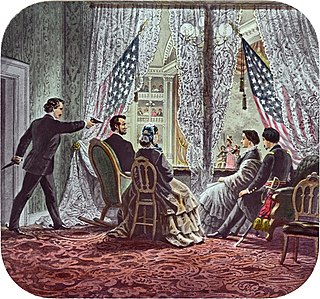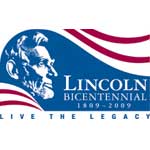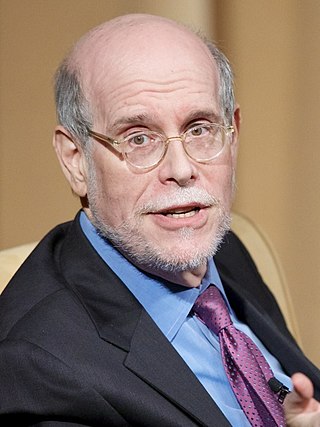Related Research Articles

John Wilkes Booth was an American stage actor who assassinated United States President Abraham Lincoln at Ford's Theatre in Washington, D.C., on April 14, 1865. A member of the prominent 19th-century Booth theatrical family from Maryland, he was a noted actor who was also a Confederate sympathizer; denouncing President Lincoln, he lamented the then-recent abolition of slavery in the United States.

Robert Todd Lincoln was an American lawyer and businessman. The eldest son of President Abraham Lincoln and Mary Todd Lincoln, he was the only one of their four children to outlive both his parents. Robert Lincoln became a business lawyer and company president, and served as both United States Secretary of War (1881–1885) and the U.S. ambassador to Great Britain (1889–1893).

Edwin Thomas Booth was an American stage actor and theatrical manager who toured throughout the United States and the major capitals of Europe, performing Shakespearean plays. In 1869, he founded Booth's Theatre in New York. He is considered by many to be the greatest American actor of the 19th century. However, his achievements are often overshadowed by his relationship with his younger brother, actor John Wilkes Booth, who assassinated the 16th president of the United States, Abraham Lincoln.

Ford's Theatre is a theater located in Washington, D.C., which opened in 1863. The theater is best known for being the site of the assassination of Abraham Lincoln. On the night of April 14, 1865, John Wilkes Booth entered the theater box where Lincoln was watching a performance of Tom Taylor's play Our American Cousin, slipped the single-shot, 5.87-inch derringer from his pocket and fired at Lincoln's head. After being shot, the fatally wounded Lincoln was carried across the street to the nearby Petersen House, where he died the next morning.

In the United States, the presidential library system is a nationwide network of 16 libraries administered by the Office of Presidential Libraries, which is part of the National Archives and Records Administration (NARA). These are repositories for preserving and making available the papers, records, collections and other historical materials of every president of the United States since Herbert Hoover, the 31st president from 1929–1933. In addition to the library services, museum exhibitions concerning the presidency are displayed.

Michael Richard Beschloss is an American historian specializing in the United States presidency. He is the author of nine books on the presidency.
The National Civil War Museum, located at One Lincoln Circle at Reservoir Park in Harrisburg, Pennsylvania, is a private 501c(3) nonprofit promoting the preservation of material culture and sources of information that are directly relevant to the American Civil War and the postwar period as related to veterans' service organizations, including the Grand Army of the Republic and the United Confederate Veterans. The museum serves as the National Headquarters for the Sons of Union Veterans of the Civil War (SUVCW).

The Abraham Lincoln Presidential Library and Museum documents the life of the 16th U.S. president, Abraham Lincoln, and the course of the American Civil War. Combining traditional scholarship with 21st-century showmanship techniques, the museum ranks as one of the most visited presidential libraries. Its library, in addition to housing an extensive collection on Lincoln, also houses the collection of the Illinois State Historical Library, founded by the state in 1889. The library and museum is located in the state capital of Springfield, Illinois, and is overseen as an agency of state government. It is not affiliated with the U.S. National Archives and its system of libraries.

Edward Steers Jr. is an American scientist and historian. He is a noted authority on U.S. President Abraham Lincoln and has received awards in both the fields of scientific research and history.

On April 14, 1865, Abraham Lincoln, the 16th president of the United States, was shot by John Wilkes Booth while attending the play Our American Cousin at Ford's Theatre in Washington, D.C. Shot in the head as he watched the play, Lincoln died of his wounds the following day at 7:22 am in the Petersen House opposite the theater. He was the first U.S. president to be assassinated. His funeral and burial were marked by an extended period of national mourning.

Samuel Bland Arnold was an American Confederate sympathizer involved in a plot to kidnap U.S. President Abraham Lincoln in 1865. He had joined the Confederate Army shortly after the start of the Civil War but was discharged for health reasons in 1864.
Douglas L. Wilson is the George A. Lawrence Distinguished Service Professor Emeritus of English at Knox College in Galesburg, Illinois, where he taught from 1961 to 1994. He then was the founding director of the Robert H. Smith International Center for Jefferson Studies at the Thomas Jefferson Foundation (Monticello) in Charlottesville, Virginia. In his retirement, he returned to Knox College to found and co-direct the Lincoln Studies Center with his colleague Rodney O. Davis.
Julie Cellini is a free-lance journalist in Illinois with a writing career spanning over 50 years. She is a former newspaper reporter who has been active in historical and cultural preservation in Central Illinois for over 30 years. In the 1960s, while covering the political news beat, she met and later married Willam F. Cellini, a Springfield, Illinois city council member.

The Abraham Lincoln Bicentennial Commission (ALBC) was the congressionally created, 14-member federal commission focused on planning and commemorating the 200th birthday of the United States' 16th president on February 12, 2009. The commission served for ten years, from 2000 to 2010. Its official successor organization, announced in 2011 with an expanded board and broadened mission, is the Abraham Lincoln Bicentennial Foundation.

Frank J. Williams is a former Chief Justice of the Supreme Court of Rhode Island, a notable Abraham Lincoln scholar and author, and a justice of the Military Commission Review Panel.

There are many coincidences with the assassinations of U.S. Presidents Abraham Lincoln and John F. Kennedy, and these have become a piece of American folklore. The list of coincidences appeared in the mainstream American press in 1964, a year after the assassination of John F. Kennedy, having appeared prior to that in the GOP Congressional Committee Newsletter. In the 1970s, Martin Gardner examined the list in an article in Scientific American, pointing out that several of the claimed coincidences were based on misinformation. Gardner's version of the list contained 16 items; many subsequent versions have circulated much longer lists.

Charles Frederick Gunther was a German-American wealthy confectioner, politician, and collector. He purchased many of the items now owned by the Chicago History Museum. He served two terms as a Chicago alderman from the city's 2nd ward.

Harold Holzer is a scholar of Abraham Lincoln and the political culture of the American Civil War Era. He serves as director of Hunter College's Roosevelt House Public Policy Institute. Holzer previously spent twenty-three years as senior vice president for external affairs at The Metropolitan Museum of Art in New York before retiring in 2015.

The Papers of Abraham Lincoln is a documentary editing project dedicated to identifying, imaging, transcribing, annotating, and publishing online all documents written by or to Abraham Lincoln during his lifetime (1809–1865).

The Lincoln Academy of Illinois is a not-for-profit, non-partisan organization dedicated to recognizing contributions made by living Illinoisans. Named for Abraham Lincoln, the Academy administers the Order of Lincoln, the highest award given by the State of Illinois. Each year several persons are selected as Lincoln Laureates at a ceremony presided over by its president, the Governor of Illinois. The organization gives an annual Student Laureate award to one student from each four-year degree-granting institution of higher learning in Illinois, plus one student from the state's community colleges. Many prominent Illinoisans have received the Order of Lincoln.
References
- 1 2 "Private Abraham Lincoln collection goes public". NBC News. June 18, 2007. Archived from the original on October 9, 2013. Retrieved 2007-06-18.
All three items are part of an immense private collection put together by a Lincoln fan over 35 years. Now the collection is about to go public after being purchased for the Abraham Lincoln Presidential Library and Museum. The collection contains hundreds of letters and documents, but its strength is the array of personal, everyday items related to the 16th president, his wife and his assassin, John Wilkes Booth.
- ↑ Beale, Lauren (2011-09-28). "Louise Taper's Beverly Park home collects $13.8 million in sale". Los Angeles Times. ISSN 0458-3035 . Retrieved 2018-05-15.
- ↑ "Meet the Commission: Louise Taper". Archived from the original on 2006-09-29. Retrieved 2007-02-14.
- ↑ Basbanes, Nicholas A., A Gentle Madness: Bibliophiles, Bibliomanes, and the Eternal Passion for Books , Henry Holt, New York, 1995, pp. 426-432.
- ↑ Connor, John (January 25, 2020). "If the $6.5M hat isn't Lincoln's, why not ask for a refund?". AP. Retrieved March 21, 2020.
- ↑ "Laureates by Year - The Lincoln Academy of Illinois". The Lincoln Academy of Illinois. Retrieved 2016-03-07.